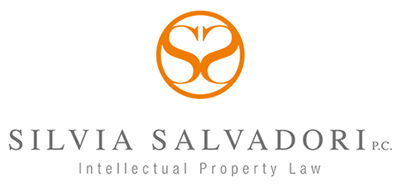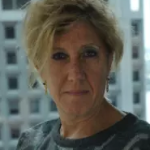Invention Patents Become Harder to Obtain. What Can Be Done?
 On May 22, 2019, the draft language of a bipartisan bill meant to amend section 101 of 35 U.S.C. was released by Senators Tom Tillis and Chris Coons. The sponsors say the bill is needed because recent Supreme Court rulings have rendered more difficult to patent certain types of inventions (diagnostic methods, software, and business methods).
On May 22, 2019, the draft language of a bipartisan bill meant to amend section 101 of 35 U.S.C. was released by Senators Tom Tillis and Chris Coons. The sponsors say the bill is needed because recent Supreme Court rulings have rendered more difficult to patent certain types of inventions (diagnostic methods, software, and business methods).
The consternation over the Court’s opinion rested not only on how limited the ability to protect critical innovations that drive the U.S. economy, but also how vague the Justices left the line between inventions that are eligible for patent and those that are not. The proposed modification includes changes in the language of the statute (35 U.S.C. § 101): Section 101:
Current:
“Whoever invents or discovers any new and useful process, machine, manufacture, or composition of matter, or any new and useful improvement thereof, may obtain a patent therefor, subject to the conditions and requirements of this title.” 35 U.S.C. 101
Proposed:
- Whoever invents or discovers any useful process, machine, manufacture or composition of matter, or any useful improvement thereof, may obtain a patent therefor, subject to the conditions and requirements of this title.
- Eligibility under this section shall be determined only while considering the claimed invention as a whole, without discounting or disregarding any claim limitation.
The draft further proposed a definition of the term “useful”: the term “useful” is proposed to mean any invention or discovery that provides specific and practical utility in any field of technology through human intervention. The draft further clarifies how these new provisions are to be interpreted.
The provisions of section 101 shall be construed in favor of eligibility. No implicit or other judicially created exceptions to subject matter eligibility, including “abstract ideas,” “laws of nature,” or “natural phenomenon,” shall be used to determine patent eligibility under section 101, and all cases establishing or interpreting those exceptions to eligibility are hereby abrogated.
The eligibility of a claimed invention under section 101 shall be determined without regard to:
- manner in which the claimed invention was made;
- whether individual limitations of a claim are well known, conventional or routine;
- the state of the art at the time of the invention; or
- any other considerations relating to sections 102, 103, or 112 of this title. That is, patentable subject matter under this draft bill would likely be as broad or even broader than the “everything under the sun that is made by man” language of Diamond v. Chakrabarty.
The Senators were supposed to hold hearings on this proposal on June 4, 5, and 11, which is why the language of the proposed bill is not final. The question is whether such legislative corrections will provide a solution for the claims to the two types of subject matter that have been mostly affected by recent Supreme Court cases: diagnostic methods and natural products. The former have been challenged more frequently and have fared more poorly than natural product claims; the main impediment of the latter is the Court-imposed proscription against patenting natural products that have “merely” been isolated from nature.
An important question is whether the Supreme Court will accept this “congressional medicine,” or whether it will find ways either to reject correction outright or parse the amended statutory language to reach the same murky results.
Preliminary information on the hearings is, as expected, confusion.
In particular, representatives of the Association for Accessible Medicines (AAM) and the American Civil Liberties Union (ACLU) expressed their concern that the proposed language of the draft bill would “allow corporations to patent genes.” The ACLU , in an article posted in The Washington Post, expressed the concern that the proposed legislation would “allow patents on basic things in nature.”
The uneasiness is directed to the language of the current draft, which would allegedly allow for the patenting of genes with new utility, despite the human genome being mapped and known.
Not surprisingly, several medical groups, as well as other organizations, had already opposed these efforts to amend the subject matter eligibility section of statute 101 to correct the imbalance caused by recent U.S. Supreme Court jurisprudence on the matter.
The uncertainty continues.
Please contact me at silvia@salvadorilaw.com with questions or comments.
Silvia Salvadori, PhD

